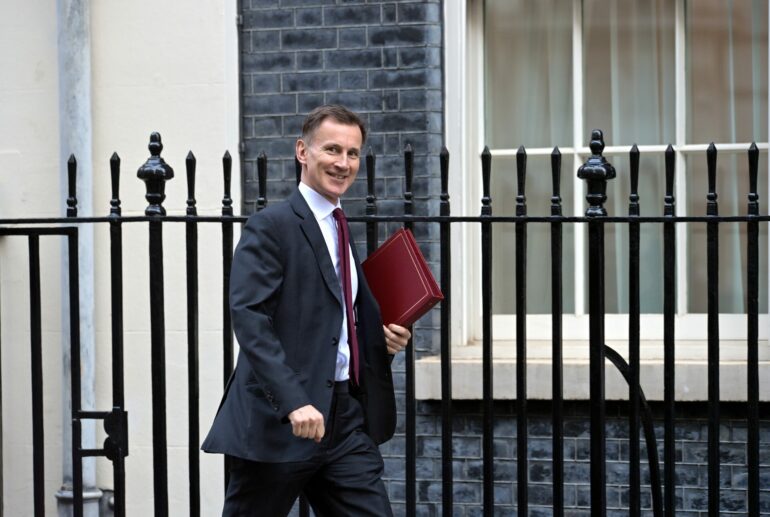Fiscal stimulus, such as a package of pre-election tax deductions without clear funding, could provide a transient economic boost but may lead to an extended recession, the Institute for Fiscal Studies (IFS) has warned.
Despite taxes approaching record highs and post-election spending plans being ostensibly stringent, the numbers indicate that sticking to these plans would result in the most substantial primary surplus in decades.
However, the Chancellor’s stance against tax cuts in the upcoming Autumn Statement is justifiable, as per key takeaways from the 2023 IFS Green Budget. This research was supported by the Nuffield Foundation and was conducted in collaboration with Citi.
A significant concern is the elevated spending on debt interest, projected to stabilise at its peak since the mid-1980s. This translates to an annual £30bn that cannot be channelled more productively. Additionally, the prospects for growth are not promising. The debt-to-GDP ratio is on course to peak and then stabilise close to 100%.
Future fiscal strains, particularly from healthcare and state pensions, are imminent. Solely the NHS workforce plan, which has bipartisan support, will elevate spending by 2% of the national income by the mid-2030s. Moreover, in the current unpredictable political and economic climate, unforeseen spikes in borrowing could be necessary.
The Chancellor aims for the debt to decrease as a percentage of national income in a specific forecasted timeframe. While this target may appear flawed, any flexibility against it doesn’t necessarily signify the potential for tax reductions.
Borrowing for this year is anticipated to be approximately £20bn less than the Office for Budget Responsibility (OBR) predicted in March. Yet, the likely final figure of around £112bn, or 4.2% of GDP, significantly surpasses its long-term average.
Paul Johnson, director of IFS, said: “We are in a horrible fiscal bind. With taxes at record levels, and government revenues forecast to exceed non-interest spending for the first time in a generation, you might expect plenty of room for either tax cuts or spending increases.
“But poor growth and very high spending on debt interest over the next few years mean that the national debt is stuck at close to 100% of national income, even with tight spending settlements and further big tax rises in the pipeline.
“The price of our high levels of indebtedness, failure to stimulate growth, and high borrowing costs is likely to be a protracted period of high taxes and tight spending.”
Benjamin Nabarro, chief UK economist at Citi, added: “The UK still faces a challenging macroeconomic outlook ahead.
“The lesson of the 1970s was to hold rates tight until you can see the ‘whites in the eyes’ of disinflation. In a highly financialised, debt-driven economy, that may turn out to be only half the story.”
Mark Franks, director of welfare at the Nuffield Foundation, concluded: “The UK economy and public finances are in a difficult place, given sluggish economic growth, a high tax burden, high Government debt and rising costs of servicing that debt.
“Demographic change is adding to these pressures, with the NHS alone expected to need an extra £50bn in annual funding in 15 years’ time, which amounts to more than the total cost of the recently scrapped HS2 extension to Manchester every year.
“This all makes an efficient taxation system and effective public spending vital, and the Green Budget sets out a number of credible and evidence-based options in this regard.”



